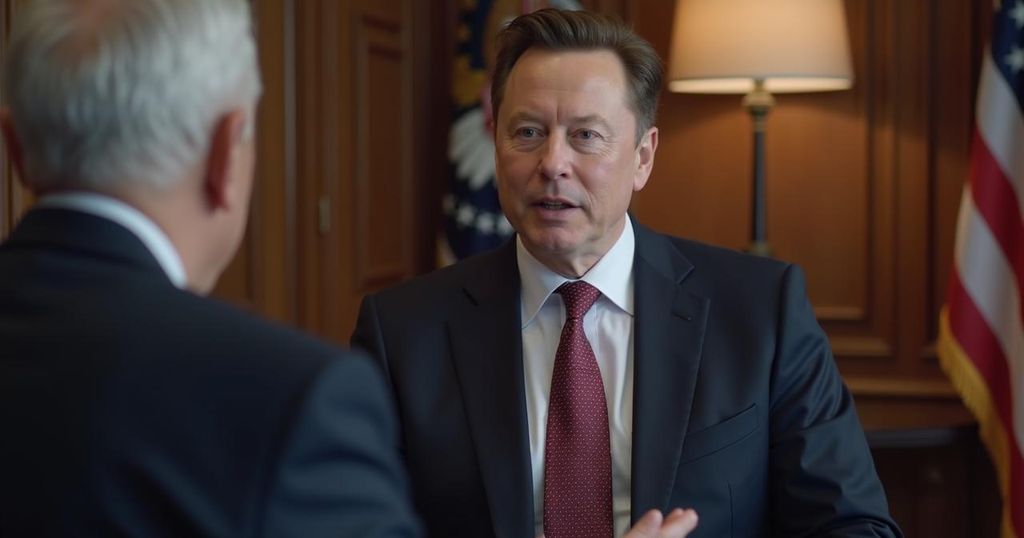Elon Musk’s $75 Million Investment in Trump Campaign Signifies Major Political Influence

Elon Musk has invested $75 million into the America PAC, endorsing Donald Trump for the 2024 presidency. His contributions highlight the significant influence of mega-donors in U.S. elections, especially following the Citizens United ruling, which has allowed substantial political spending without limits. The PAC aims to support Trump in critical battleground states, showcasing the increasing intertwining of wealth and political power.
Billionaire entrepreneur Elon Musk has recently directed approximately $75 million towards his newly established political action committee (PAC), the America PAC, which supports former President Donald Trump in his 2024 presidential campaign. Musk’s financial infusion highlights his significant role in Trump’s endeavors to reclaim the White House in the upcoming election against Democratic candidate Kamala Harris. This substantial investment was disclosed in a federal filing and comes after Musk’s endorsement of Trump in July, following a notable assassination attempt on Trump in Butler, Pennsylvania. Musk articulated his motivations for creating the America PAC during an appearance with prominent right-wing commentator Tucker Carlson, stating that he aims to uphold the values of secure borders, responsible spending, safety in urban areas, equitable justice, individual liberties, and self-defense. Notably, Musk, a figure of immense wealth and influence due to his holdings in Tesla, SpaceX, and X (formerly Twitter), has actively participated in Trump’s campaign events, unambiguously aligning himself with the Republican agenda. Moreover, the America PAC has emerged as a formidable financial force, allocating a total of $87 million to the election efforts by early October. The PAC’s expenditures are primarily focused on voter mobilization in critical battleground states such as Pennsylvania, Michigan, North Carolina, Wisconsin, Georgia, Nevada, and Arizona. This spending surge is facilitated by the implications of the Supreme Court’s 2010 Citizens United ruling, which permits unlimited financial contributions to political campaigns, provided there is no direct coordination between corporate entities and candidates. As anticipated spending on federal elections is projected to reach a historic $15.9 billion for the 2024 election cycle, the growth of political donations from major financial players, characterized by their ability to contribute via super PACs, underscores the increasing influence of corporate money in the electoral process. Notably, outside expenditures among conservative groups markedly surpass those of previous election years, reflecting a trend reversal in campaign funding dynamics.
The funding landscape in U.S. elections has transformed significantly since the Supreme Court’s Citizens United ruling in 2010, which allowed corporations and individuals to contribute unlimited sums to political action committees (PACs) without direct affiliate oversight. This has facilitated the rise of super PACs, which are able to gather large amounts of financial support for candidates, thus increasing the overall spending in electoral campaigns. With projections estimating that external contributions will surpass previous years, the implications of billionaire donors like Elon Musk on the political landscape are ever more critical, showcasing the intertwining of finance and political influence in contemporary electoral processes.
In summary, Elon Musk’s $75 million investment in the America PAC signifies a pivotal moment in political funding and demonstrates the profound impact of billionaire contributions on U.S. elections. As Musk openly supports Donald Trump’s bid for the presidency, his financial clout illustrates the increasing role of wealthy individuals in shaping political outcomes and policy directions. The upcoming election season, forecasted to be the most expensive yet, will further test the boundaries between financial contributions and political influence, setting the stage for profound implications in the American democratic process.
Original Source: www.aljazeera.com




